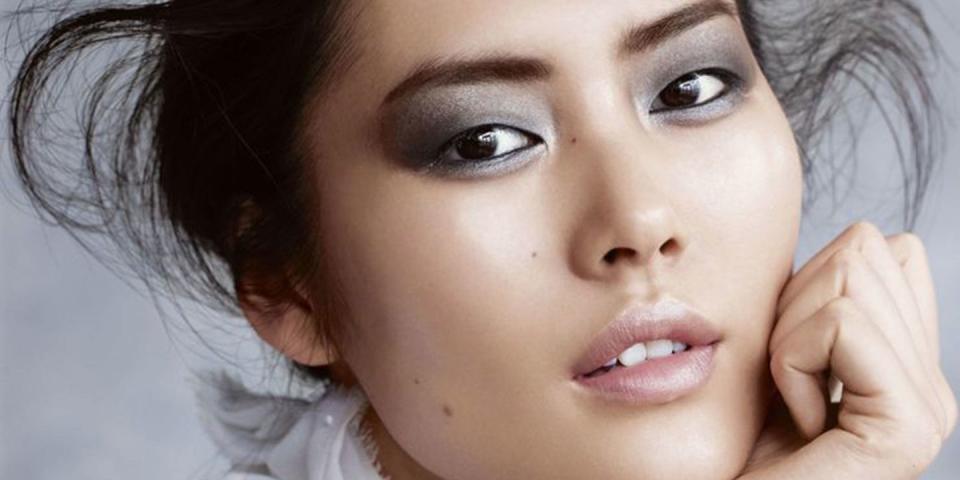It's time we stopped downplaying the UK's anti-Asian racism

“It feels as if we do not really matter or exist.” That’s how Asian-American designer Phillip Lim put it in a subdued Instagram video uploaded in February, just after a wave of violent attacks on Asian people – particularly the elderly – shook America and poisoned this year’s Lunar New Year festivities.
According to nonprofit AAPI Hate, there have been more than 3,000 hate crimes against Asian Americans since the pandemic began. Viral videos grimly illustrated the statistic, with an 84-year-old Thai man fatally assaulted in broad daylight in San Francisco and a 52-year-old Asian-American woman attacked outside a bakery in New York.
Lim was among a swathe of designers, celebrities and influencers – including Prabal Gurung, Olivia Munn and Daniel Dae Kim – who pleaded with Americans to lend their support to the Asian-American community as part of the #StopAsianHate movement.
It’s tempting to see this as a uniquely contemporary American problem, and that’s how British contributors to the hashtag have tended to position it. But hate crimes against East and South East Asian (ESEA) people have increased in the UK, too. According to the advocacy group End the Virus of Racism, there has been a 300 per cent increase in hate crimes towards people of East and Southeast Asian heritage since the start of the pandemic.
In March of last year, Jonathan Mok – a 23-year-old student who, like me, is from Singapore – was assaulted so badly that he required facial surgery. Just last week, a bloody photo of a university lecturer named Peng Wang circulated the internet after he was attacked in Southampton.
I feel the same way now as I did watching the videos of Asian-American elders getting assaulted – a queasy drop in my stomach, the sense that I am observing myself through a dark mirror. After years of being systematically underrepresented in mainstream media – when merely spotting a Chinese face on a British TV show would make my mother shout for me to come to the living room – faces like mine are now overrepresented, for all the wrong reasons.
This racist hatred is nothing new. Speak to any kid who grew up in an Asian takeaway in the UK and they’ll have tales of their parents fending off drunk, racist customers. Coronavirus has only sharpened this inchoate prejudice and renamed it 'kung flu'. As far back as World War II, the Home Office conspired with shipping companies in Liverpool on mass deportations of “undesirable” Chinese sailors who were striking for better pay, even after they had served in the British Merchant Navy and started families of their own. As one woman remembered it: “‘He just went out to the shop, and my mum was waiting for him to come home, and he never came.”
My theory is that this kind of trauma lingers deep in the roots of a country. The conventional understanding of first-generation immigrants is that they were too focused on building their new lives and didn’t rock the boat. But of course they did – if the alternative is to speak up and be ripped away from your home, what choice did they have?
“We exist, but do we matter?” That’s the question posed by implication in Lim’s video. Even today, politicians don’t seem ready to engage with the concerns of the ESEA community – Labour MP Sarah Owen describes seeing other politicians describe Chinese people as “evil bastards” and sharing racist caricatures. 33 per cent of the images used to report on Covid-19 in the UK featured Asian people – even though we all know by now that coronavirus is a disease that afflicts people of all backgrounds. These are all acts of racism, pure and simple, and yet no one has taken responsibility for them.
Then there’s the well-known micro-aggressions that grind your anger down into a dull nub. You can spot them coming: there’s always a weird glint in the eye of someone who’s determined to use the word “Oriental”, their awe that you can string a sentence together in basic English; the go-homes and where-are-you-really-froms; the stereotyping that sees ESEA men typecast as desexualised geeks and women as fetish objects.
I’ve told my friends these stories and laughed it off. Now I wonder if I was complicit in my own silencing. I’ve told the same friends about the racist messages sent to me on social media, about the woman who said “alright, ching chong?” in my face as I got out of Old Street tube, and their reactions change from amusement to horror. I don’t feel as if anything has changed, and yet I know it has. The atmosphere feels different – that familiar prickle of dread is now tinged with fear.
In need of some at-home inspiration? Sign up to our free weekly newsletter for skincare and self-care, the latest cultural hits to read and download, and the little luxuries that make staying in so much more satisfying.
You Might Also Like

